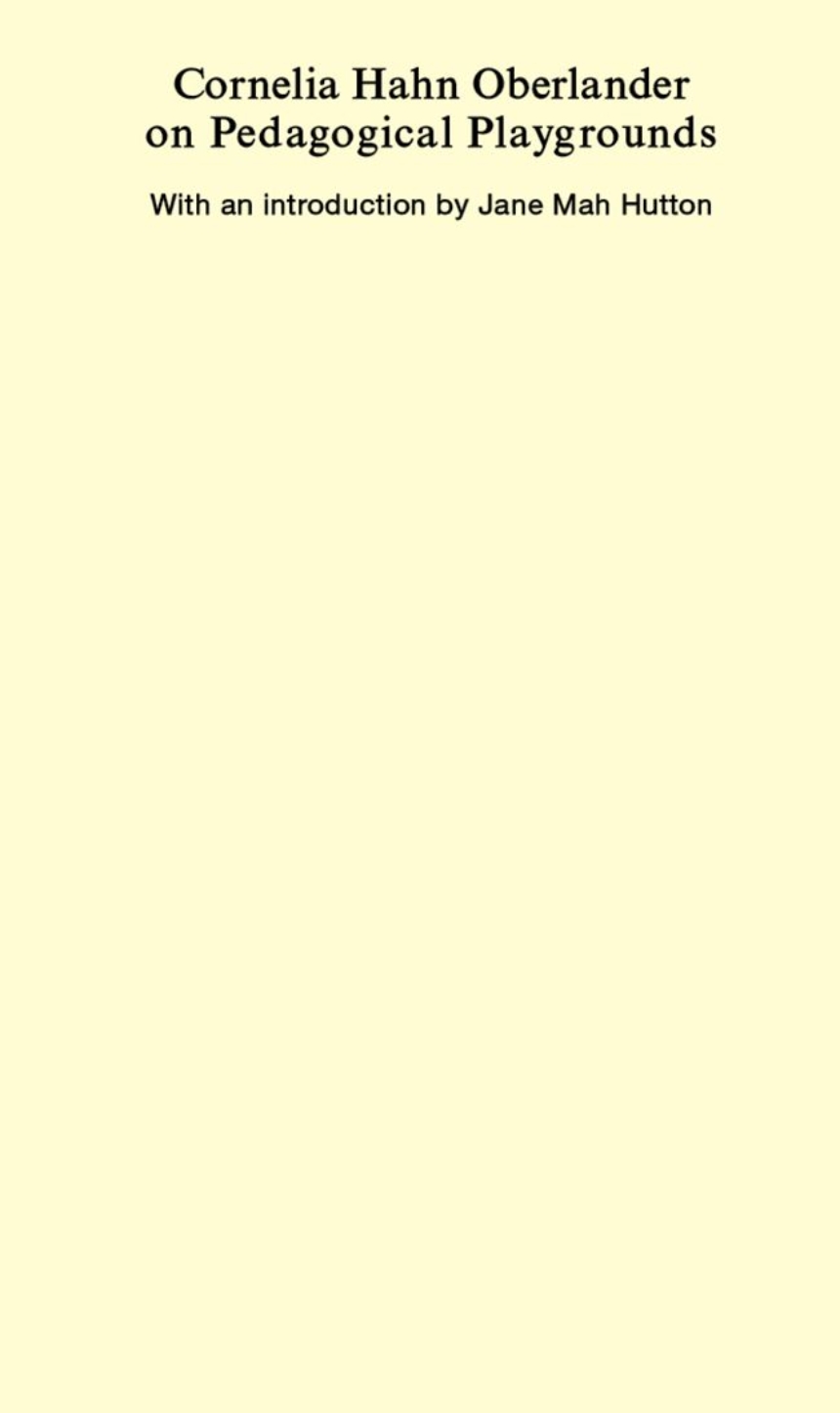Distributed for Concordia University Press
Cornelia Hahn Oberlander on Pedagogical Playgrounds
A collection of writings by a celebrated playground architect.
Cornelia Hahn Oberlander on Pedagogical Playgrounds is a curated selection of writings by a landscape architect dedicated to children’s right to play in urban environments. This volume assembles key texts from the 1960s and 1970s where Oberlander urges city planners and developers to recognize playgrounds as important sites for childhood development and to include them in new construction. She emphasizes the social benefits that free play and independent discovery create, and she provides practical proposals for the formulation of new playgrounds.
In pieces including a short history of children’s play, reflections on her own work, and a report urging levels of government to protect children’s right to play, Oberlander responds to austerity by encouraging the use of inexpensive and recycled materials such as sand, water, logs, boards, and tires for use in playgrounds and suggests vacant lots as play sites. She argues that developers and planners must always consult with their users and that children’s input and needs must be considered in playground design.
An introduction by Jane Mah Hutton, landscape architect and associate professor at the University of Waterloo School of Architecture, explores the intersections of active play, ecological thinking, urban development, and the enthusiastic and often-playful advocacy of Oberlander’s writing and practice.
This title is a collaboration between Concordia University Press and the Canadian Centre for Architecture and is part of the Building Arguments series.
Cornelia Hahn Oberlander on Pedagogical Playgrounds is a curated selection of writings by a landscape architect dedicated to children’s right to play in urban environments. This volume assembles key texts from the 1960s and 1970s where Oberlander urges city planners and developers to recognize playgrounds as important sites for childhood development and to include them in new construction. She emphasizes the social benefits that free play and independent discovery create, and she provides practical proposals for the formulation of new playgrounds.
In pieces including a short history of children’s play, reflections on her own work, and a report urging levels of government to protect children’s right to play, Oberlander responds to austerity by encouraging the use of inexpensive and recycled materials such as sand, water, logs, boards, and tires for use in playgrounds and suggests vacant lots as play sites. She argues that developers and planners must always consult with their users and that children’s input and needs must be considered in playground design.
An introduction by Jane Mah Hutton, landscape architect and associate professor at the University of Waterloo School of Architecture, explores the intersections of active play, ecological thinking, urban development, and the enthusiastic and often-playful advocacy of Oberlander’s writing and practice.
This title is a collaboration between Concordia University Press and the Canadian Centre for Architecture and is part of the Building Arguments series.
